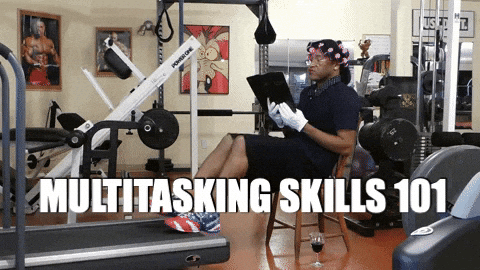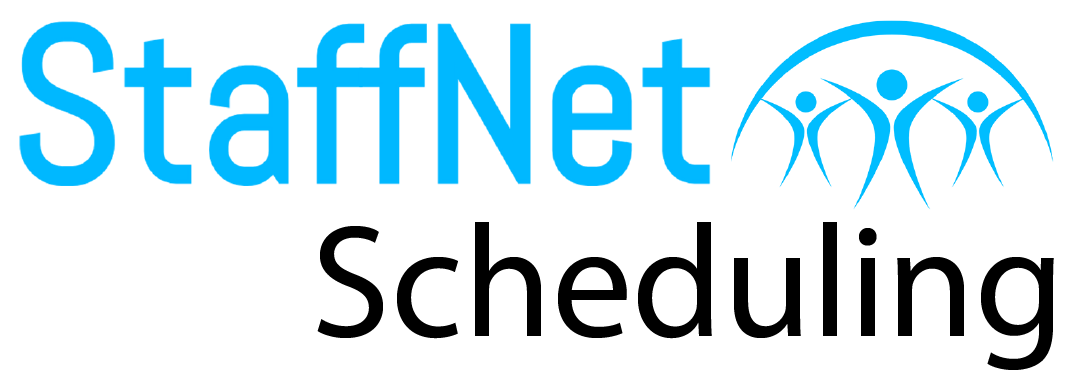Our brains: a supercomputer. But they were not built to do perform multiple tasks simultaneously, all-day, every day.
Not only are you not good at it [I can hear 1000’s of people screaming at their screens “but yes, I AM!”], our brains are not wired to multitask.
“We are the sum of our actions, and therefore our habits make all the difference.” — Aristotle
Though it’s a learned human behavior multitasking just seems to make sense to us.
From having a busy lifestyle, a demanding job or a family that depends on you to run the house, the ability to multitask feels like a skill that’s necessary to survive. But is it?
We’ll jump into how our brains are not wired to multitask and the compound damage it can be causing below.
To any problem there’s always a solution though — we’ll also outline how to break this bad brain habit and positive habits to work towards.
How to change your habits ins 5 easy steps:
Is your brain freaking out right now or breathing a sigh of relief? Either way, let’s dive in!
The learned behaviour
If you were in surgery and your surgeon was multitasking between watching TV, checking out this website, updating social media content for his practice and then hopping back to you, the patient, and back to updating his social media again, I doubt you’d agree this was a smart combination.
The extreme example is to highlight how doing these handful of tasks or pass times that don’t correlate and contribute solely to the work you’re doing in the now, is not helpful to execute a task and to do it well.
Multiple tasks bidding for your attention…
In this digital era with millions of pieces of information that are bidding for your attention 24/7 it’s become overwhelmingly impossible to avoid media multitasking.
From checking your email to clicking the link in the email, then hopping over to check your bank account, to pay that bill and then back to your email again, your head is on this never end carousel of task switching that just won’t stop.

More than one task at a time is too many
“I’m a good multitasker” — I see on resumes every week and hear it frequently during interviews. In fact, I used to say the same thing!
In running a business, we can get so caught up with the profit margins, stretching resources and setting new standards of doing more in the same amount of time in a days work.
At some point the human perception of someone successful was this idea of being able juggle multiple tasks in rapid succession, while simultaneously excelling and doing more.
On the other end of the spectrum when we see someone working at a slower pace, one task at a time, we judge and compare. Why aren’t they doing more? They’re not working fast enough; not as fast as the rest of us.
What few people realize is that the single task worker is 20X less likely to make a mistake than the multitasker.
That the perception of the multitasker working being fast is actually wrong — multitasking could actually be costing up to 60% of potential productivity by switching from back and forth between multiple tasks.
Sit with that for a minute.
One could even argue it would probably cost your business a lot less in revenue to avoid making a mistake and also saving face for the brand.
Research suggests that multitasking is a bad brain habit [more on that below], yet we’ve adopted this to seen as a vital to skill to be a productive and valuable member of a team.
Heavy is the head of heavy multi-taskers
Bad brain habits aren’t your fault, really.
Many of these habits were long formed before you even understood the concept of a habit, or you were intentional about a creating a habit and likely stem from a person in your life.
The stark reality is that our days are often on autopilot, with us accepting that it is what it is and completely unaware of our bad brain habits.
Psychological research has shown time and time again that this cognitive load of switching back and forth between different tasks is negatively affecting your prefrontal cortex where your short-term working memory is stored.
This is causing major brain overloading, memory decficienies, decreasing optimal brain function overtime, causing more mistakes, time and resources within your day-to-day operations.
Why do we love multitasking so much
We [our brains] want that sweet, sweet hit of instant gratification and dopamine — our reward hormone.
Naturally our brains love this hormone, so what do we do? We seek more of the good stuff. The “good” stuff comes at a cost though: bad brain habits.
The issue with quickly shifting from paying a bill to, answering emails, to taking a phone call, checking your to-do list, we feel we’ve accomplished many goals and receive more dopamine — our reward.
Why you should stop multitasking
It’s a slippery slope if we don’t start to take cognitive control over our bad brain habits.
The more we do this, the more the negative effects of this habit alters the way we think, especially in young adults minds.
Multitasking affects us from a young age. Our thinking is altered by this sense of doing more to feel more fulfilled and thus more valuable . Which is simply not true.
Unfortunately it’s popular belief that focusing on one single task at a time is making us slower than the rest; in such a busy world, it’s viewed as downfall or weakness.
Hopping from one task to another makes it hard for our brains to understand how to reward itself. The major issue being, that if we stick to one single or complicated task requiring our full attention, we go through a dopamine withdrawal and loose the sense of satisfaction when having only done one task.
You can do it all — just one task at a time
How can we change a habit? Here are the methods and strategies that have helped me.
1. Clearing the tasks distractions
-
Clearing workspace free of clutter, sticky notes of to-do’s and your phone
-
Need to have your phone? Silence it and put it on do not disturb
-
Close the tabs or open a completely new browser with no other tabs open
-
Shut the door to your office. No office? Put on headphones with a light tune in the background on
2. Be intentional & respecting your time
-
Organize your day ahead of time
-
Prioritize tasks with the “No Questions Asked” rule (see the rule in action here)
-
Be realistic with the amount of tasks that can be done in a day. We’re looking for quality, not quantity.
Pro Tip:
Prioritize complicated tasks for your golden hours and leave the simple tasks for later in the day when energy is low.
3. Time blocking tasks
-
Step 1: Set a timer for 30 straight minutes
Note: 30 minutes is the recommended amount of time to work on something straight to ensure maximum engagement from your brain. Anything beyond that can be a strain, and risks losing the full cognitive control. If the task is longer than 30 minutes, plan for small 5 minute breaks away from the task to disengage and allow your brain to take a breather.
-
Step 2: Work on that single task for 30 minutes
-
Step 3: Continue with original task or move next task
4. Delete or delegate tasks
-
Step 1: Take inventory of your day-to-day tasks. Write them down.
-
Step 2: Prioritize the list from most tasks important being what will move your needle forward in personal or business successes
-
Step 3: Trim the fat. What fell flat on that list? What tasks you cut from the list?
-
Step 4: Have items that you personally would like to have removed from the list, but these tasks still need to get done? Ask for help. Delegate to someone you know can help.
5. Boundaries
Days are busy, and as a business owner wearing 10+ hats we can have tasks just fall into our laps without asking. All day long — if we let it happen.
Creating solid boundaries with yourself and/ your team will help you navigate these types of situations.
Options can be:
-
Delegating tasks
-
Reprioritizing something that was set for the day’s schedule to allow for the new tasks
-
Deleting tasks
Pro Tip:
Have a paper beside you to scribble the thought or the thing you want to do and tackle it later. At least now you will not forget, stay focused and you can respect your time to get back to what you set out to do.
New habits are a process
Just like how this habit of multitasking took years to form and develop, it’ll take a minute to create new positive habits and time to rewire the way we move through our day one single task at a time [when safely possible] is a process.
I’ll be honest, I’m still a work in progress — as I’m writing this article, I’ve thought about multiple things from calling the dentist book my cleaning, wanted to walk to the mailbox to check the mail and had my phone go off to check an email that just came in.
It’s endless and it’s hard. But it’s 100% worth it.
The power of single tasking
Through my own personal research shows that on the other side of establishing better brain habits, kick the urge to switch back and forth between tasks, I’ve become more intentional within my day.
What’s even more surprising is that I get more done. With this laser focus mentality I end up completing more of the tasks that will actually move my needle forward than the tasks that just kept me on the hamster wheel of busy work all the time.
Through single tasking I’ve gained a better understanding of the busy v. the productive work and have never felt more in control of my day and business.
For once my day wasn’t working me, I was making it work for me.
Last reminders [quit multitasking]
Trust the process — whether you’re writing a piece for a blog, social media, meeting agenda, or planning an event — whatever you’re up to, focus on the one task.
Yes, you are one in 7+billion. Yes, you are amazing. But, no, you are not a good multitasker.
I hope this post has sparked and inspired you to focus on one task at a time.
Subscribe below to have our weekly content sent right to you & leave a comment below with your thoughts and feedback!
Much love,
Team StaffNet ✌️




